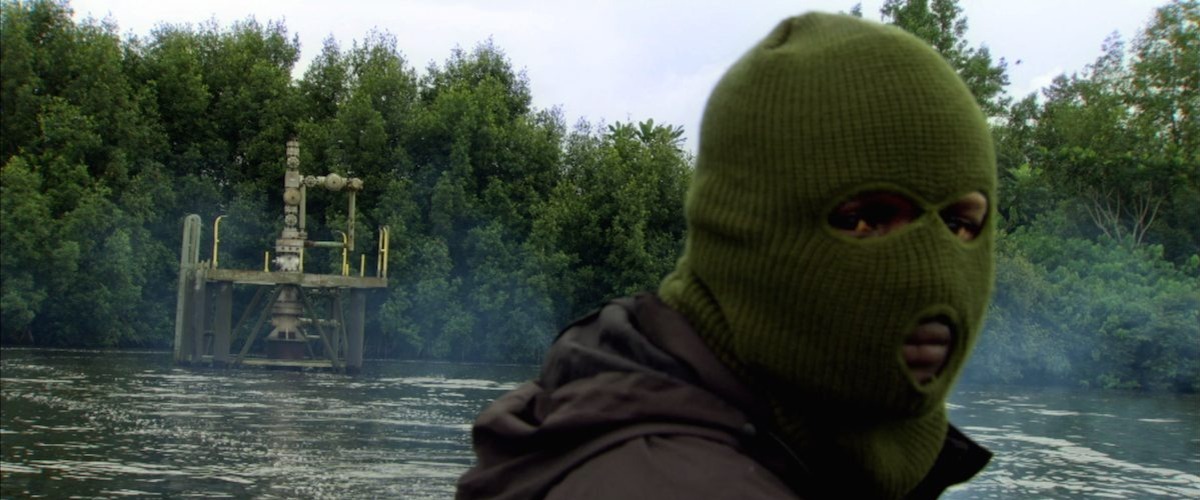Title: Big Men
Director: Rachel Boynton
A kind of true-life, slow-motion disaster flick for the NPR set, director Rachel Boynton’s “Big Men” is an engaging documentary that roots down into the very human and relatable effects of the discovery of a huge African oil deposit upon a disparate variety of characters, from the penthouse to the pavement. Assaying the mores and motivations of all these dreamers and schemers, the film throws a spotlight on human fallibility, and all the shades of grey that color the geopolitical world.
The movie opens in 2007, when a small, Dallas-based oil exploration firm, Kosmos Energy — working in concert with local partners and an American investment group, Blackstone — makes an unprecedented find off the coast of Ghana. No oil has been found there before (hence the reluctance of bigger oil companies to spend the money and time drilling), but the rich shale deposit, christened the Jubilee Field, stands as a potential source of multi-billion dollar profit for Kosmos and its Chief Executive Officer, Jim Musselman. It also spells opportunity for Ghana, who has seen African neighbors like Nigeria fail to reap percentile reward for the exploitation of their natural resources. When Ghana elects a new president who is open to renegotiating terms of the Jubilee contract struck between Kosmos and the state-owned oil company, it represents the first of several monkey wrenches thrown into the situation — with enormous consequences for all involved, including the citizens of Ghana.
“Big Men” is, for most of its running time, poised on the precipice of the sort of incidents that fire the go-go narrative clip of most Hollywood thrillers — even those rooted in “issue.” This is a movie about the art of the deal (and steal) — the back room machinations that go into the shaping of hugely important public policy decisions. Thankfully, Boynton has a knack for elucidating corporate influence through character. The plights of Musselman (who gets effectively muscled out of his own company) and his American colleagues are communicated with surprising grace and sympathy, even if there are times when, at the very least, they seem guilty of gilding the lily.
Tying Ghana’s struggles more broadly, though, to the plight of Nigeria, whose discovery of oil in the 1950s has been a boon for corrupt politicians and the ruling class, proves an intuitive and hugely rewarding tack. It’s the equivalent of flashing forward to the ruinous, jolting horror of an important character’s seeming death. Is this what awaits Ghana, inevitably? Or is it an adjunct tragedy, with lessons that these players might heed?
Boynton’s film smartly digs into the inherent rot in social systems, and, if one pays close attention, apportions blame in non-incendiary fashion. Hollywood’s interest in her talents is certainly readily apparent; Brad Pitt serves as an executive producer on “Big Men,” while her first nonfiction film, “Our Brand Is Crisis,” is currently being developed into a narrative feature, with “Gravity” co-stars George Clooney and Sandra Bullock set to re-team. A leap to complex, political-based narrative filmmaking seems in the cards, should Boynton desire it.
Technical: B-
Story: B
Overall: B
Written by: Brent Simon

